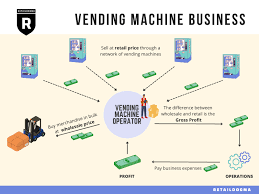We tell you what the advantage of this marketplace is and how it differs from other platforms. We also publish step-by-step instructions for those who want to start working with the Market.
Pros and cons of the marketplace
What can you sell on Yandex Market
Differences from other sites
Models of work for sellers on the Market
Commissions and tariffs
How to start working on Yandex Market
Expert advice
Pros and cons of the marketplace
Table of Contents
Yandex Market is one of the largest Russian marketplaces. According to Data Insight , it is in third place in terms of online sales after Wildberries and Ozon. Here are the pros and cons of the Market:
Pros
✅ Audience trust
The marketplace belongs to the Yandex ecosystem, which includes many other popular services: Taxi, Lavka, Food, Delivery.
✅ Weak competition
Yandex Market does not yet have as many sellers as other marketplaces.
✅ Door-to-door delivery
Market has its own courier service that can deliver the goods directly to the customer.
✅ Available for different categories of entrepreneurs
Self-employed individuals, individual entrepreneurs and LLCs can sell on Yandex Market .
✅ Analytics
You can track how many people viewed the product card and how long they studied it, how many buyers added the product to the cart.
✅ Privileges for new sellers
You can get 10,000 ₽ for paid promotion.
Cons
❌ Fewer buyers
Yandex Market’s audience is narrower than on other platforms.
❌ Few pick-up points
Compared to other marketplaces, Market has fewer pick-up points, especially in the regions.
❌ Fewer warehouses
This may cause problems with shipping goods.
❌ High commissions for placement
In some categories they reach 22.5%.
❌ It is more difficult to promote a card
The seller does not create his own product card, but attaches it to a standard one that already exists on the site. That is, you cannot experiment with infographics, design, description.
You can learn how to launch sales and manage existing businesses on Yandex Market and other platforms on the course “Marketplace Manager” . Students will learn how to find a profitable niche, calculate unit economics, create selling product cards and raise them in the search results. You can start working in 2-3 months after training.
Read Also:Comcast Business Solutions for Your Company
What can you sell on Yandex Market
You can sell almost anything on Yandex Market: from hair bands to computers and snowboards. Here are some product categories on the marketplace:
1● Jewelry
● Household appliances
3● Household chemicals
4● Pet supplies
5● Books
6● Furniture
7● Clothes and shoes
8● Electronics
There are also categories that cannot be sold on Yandex Market: for example, alcohol, tobacco products, weapons. The marketplace also sets restrictions for certain types of goods. Here are some examples:
Product
Limitation
Products for children
To sell them on Yandex Market, the seller needs to upload documents from the manufacturer – for example, a certificate of state registration.
Clothes, shoes and accessories
It is important to indicate the required parameters of the goods – color, size, brand.
Perfumery and cosmetics
You cannot sell samples and testers on Yandex Market.
Lighting agents
According to the rules of the site, only people over 18 years of age can purchase such goods, such as lighters.
Car tires
There are storage restrictions here – you can’t leave them in the marketplace warehouses.
Differences from other sites
Each marketplace has its own specifics and rules for sellers. We chose two popular platforms — Ozon and Wildberries — and compared them with Yandex Market.
Models of work for sellers on the Market
Yandex Market takes on the work with goods and orders — in whole or in part. What exactly it will do — the seller decides when choosing a model of cooperation with the marketplace. There are four of them:
1. FBY — Fulfillment by Yandex
Storage and delivery of goods — on the Market side. The seller must regularly check the availability of goods in warehouses. The FBY model is not available to self-employed individuals.
2. FBS — Fulfilment by seller
The marketplace is responsible only for delivery. Storage, collection, and packaging of goods are on the seller’s side.
3. Express
This is delivery in 1-2 hours. Couriers come directly to the warehouse or point of sale, pick up the packed orders and deliver them to the buyers. The seller’s task is to process new orders as soon as they arrive, so that the delivery is fast.
4. DBS — Delivery by seller
The seller does everything: stores, collects and delivers the goods to the buyer.
Commissions and tariffs
Yandex Market charges a commission to the seller for placing products on the showcase . Its size depends on the product category and the model by which the seller cooperates with the marketplace. For example:
1● Automotive tools — from 16 to 19%
● Home appliances — from 8.5 to 9.5%
3● Garden decor — 18%
4● Books — 21%, audiobooks — 6%
5● Children’s clothing for girls — from 19.5 to 22.5%
6● Upholstered furniture for the home — from 9.5 to 13.5%
7● Cosmetics — from 17 to 20%
The commission is paid automatically – by offset: the Market withholds the amount from buyers’ payments.
The Market also has fees for accepting and transferring payments from buyers. For the fact that the marketplace accepts money, it is 12 kopecks for each item in the order. And the fee for transferring money to sellers depends on the frequency of payments and is calculated from the price of the goods – from 1.3 to 2.7%.
In addition to commissions, you also need to pay the rates for the model under which the seller cooperates with the Market:
FBY
The delivery rate depends on the size of the goods. For small ones – 5.5% of the price, for goods over 25 kg – 500 ₽ per unit.
Warehouse storage, if goods are sold for longer than 90 days, is 0.1 ₽ per liter for the Moscow region and 0.05 ₽ per liter for other regions.
Acceptance of surplus goods – 150 ₽ per item.
Disposal – from 35 to 380 ₽ depending on the size.
FBS
The order processing fee depends on the shipping method: in sorting centers, pick-up points or from the warehouse to the courier. Cost — from 10 ₽.
The cost of delivery to the buyer depends on the dimensions. For small ones – 5.5% of the price, for goods over 25 kg – 450 ₽ per unit.
Express
Delivery cost: for small items – 5.5% of the price, for items over 25 kg – 700 ₽ per unit.
You will also have to pay for late or cancelled orders due to the seller’s fault – from 10 to 100% of the cost of placing the goods.
DBS
If the buyer does not redeem or returns the order to the Market pick-up point, you must pay for the handling of the shipment – 50 ₽ – and its return delivery – from 15 to 3500 ₽ depending on the weight of the goods.
For delays and cancellations of orders due to the seller’s fault – from 10 to 100% of the cost of placing the goods.
Read Also:Boost Your Analysis with rdatao – The Ultimate Tool
How to start working on Yandex Market
We have prepared step-by-step instructions for those sellers who are going to trade on Yandex Market.
1. Choose a business registration form
You can work as an LLC, individual entrepreneur, or self-employed .
2. Register a store on the Market and specify its name
To do this, you need a Yandex ID account.
3. Specify the city where the goods are stored
This must be the city of the main warehouse. Later, you can create stores for other warehouses.
4. Specify the number of goods and the category
For example, garden furniture – tables.
5. Conclude an agreement
To do this, the seller needs to send an application .
6. Upload a product catalog
By file, manually, or via API .
7. Select a work model
There are four of them: FBY, FBS, Express, and DBS.
8. Prepare the goods for sale
To do this, you need to upload documents for the goods and set up cards. Then the Market will check everything – this will take a maximum of one day, usually less – 6-8 hours.
9. Set up returns
In most cases, the Market will fill in the data automatically.











